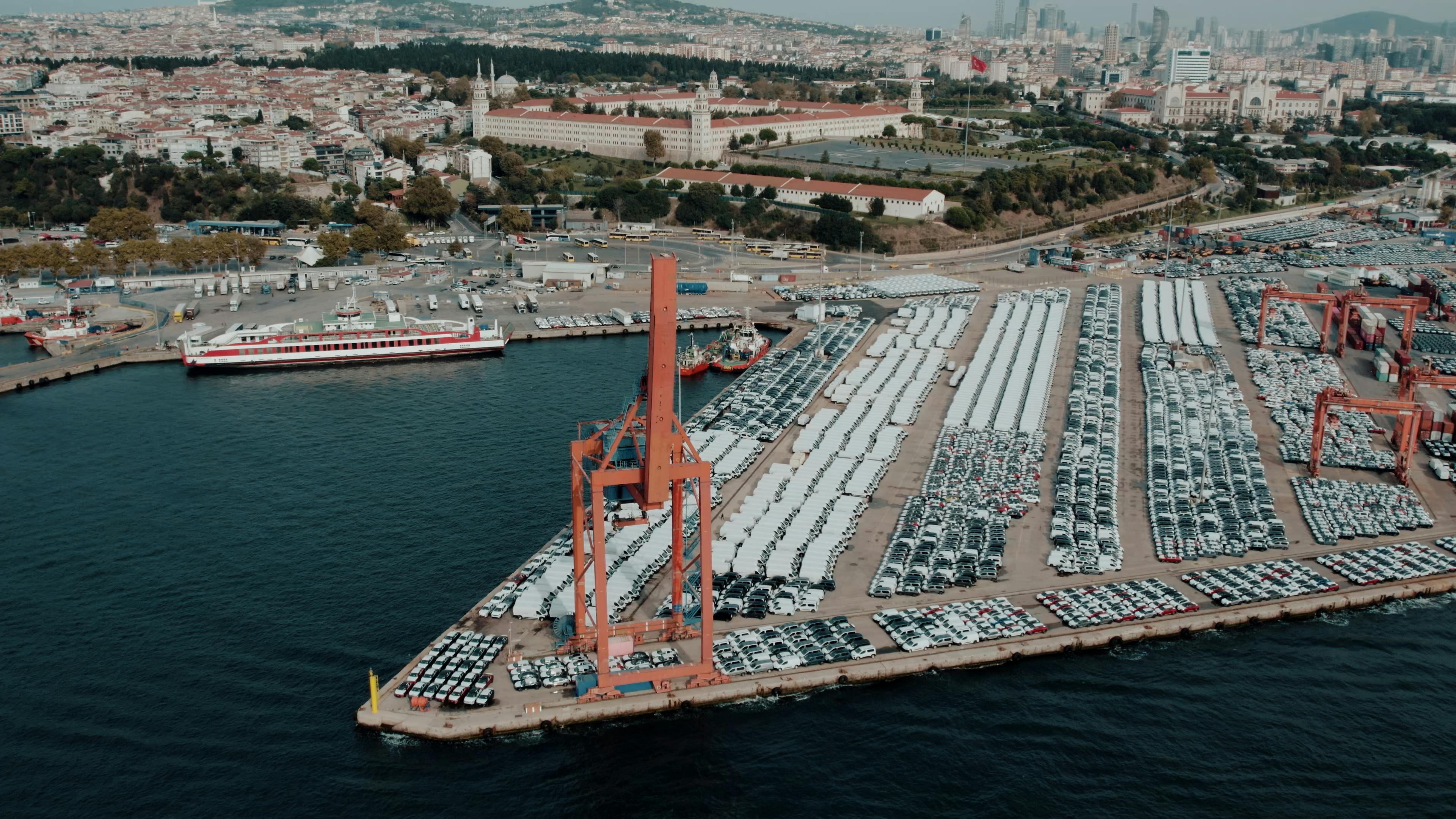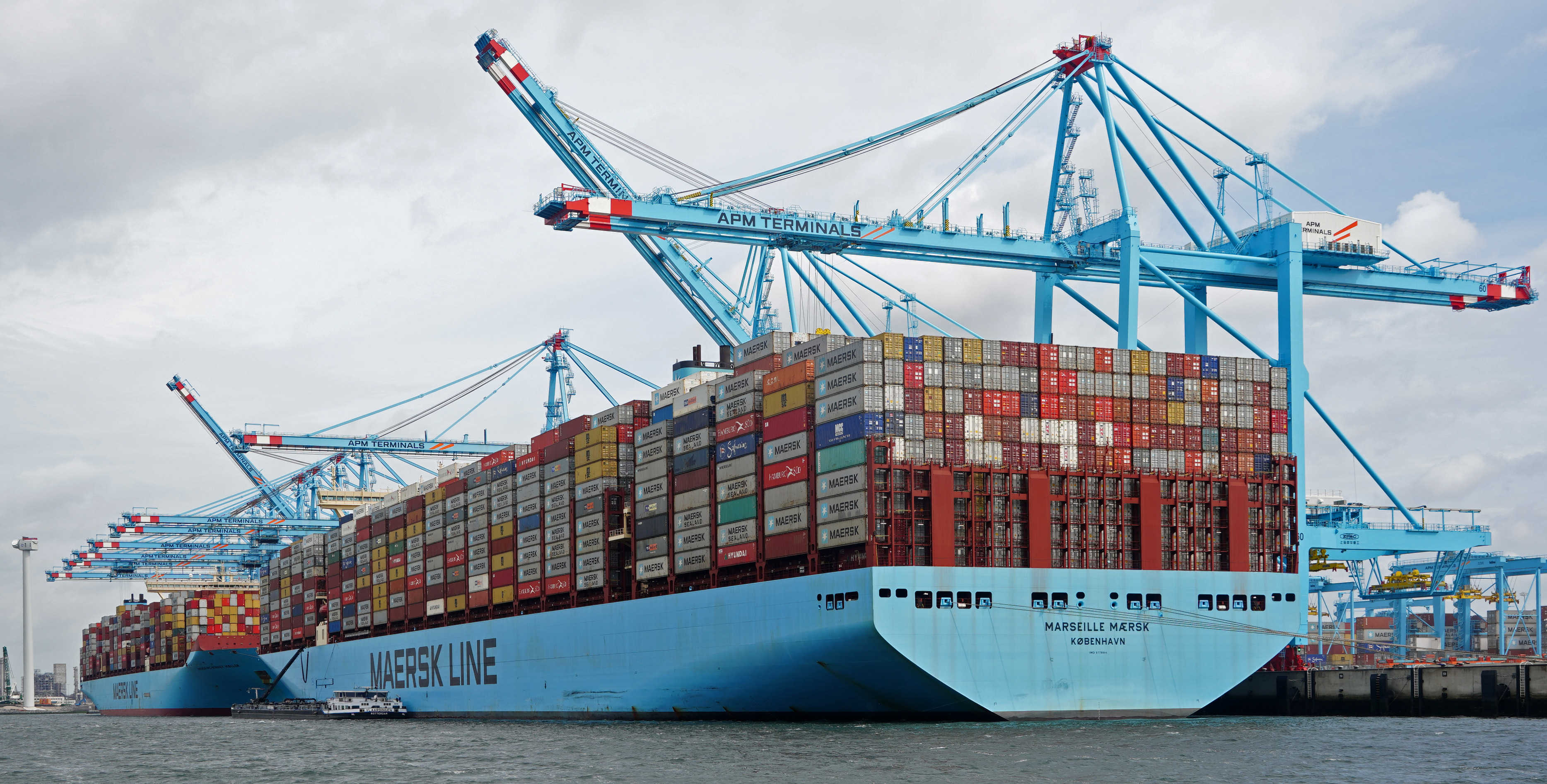Air Freight Vs. Ocean/RoRo Car Shipping: Complete Guide You Must Know
When shipping your vehicle internationally, choosing between air freight and ocean/RoRo shipping represents one of the most critical decisions in the process. Each method offers distinct advantages and tradeoffs that can significantly impact your shipping experience, timeline, and budget. Understanding these differences is essential for making the right choice for your specific situation.
Air Freight vs. Ocean/RoRo Car Shipping
The fundamental difference between air freight and ocean shipping lies in the balance between speed and cost. Air freight prioritizes rapid delivery at premium pricing, while ocean and RoRo shipping emphasize cost-effectiveness over extended transit times.
Want to learn more about how air freight compares to traditional methods? Check out our in-depth article on Air Freight vs. Ocean & RoRo Car Shipping for a full breakdown of speed, cost, and use cases to help you choose the right method for your vehicle.
Speed and Transit Times
Air Freight Advantages:
Air freight delivers unmatched speed in international vehicle transport. Most air freight shipments complete within 3-7 days for the actual transit, with total door-to-door delivery typically accomplished within 1-2 weeks. This rapid timeline makes air freight ideal for time-sensitive shipments where delays could result in significant financial or operational consequences.
Ocean/RoRo Transit Considerations:
Ocean and RoRo shipping require significantly longer transit periods, typically 4-8 weeks from departure to final delivery. While slower, ocean shipping provides consistent, reliable service with frequent departures from major ports worldwide.
Security and Handling
Air Freight Security Benefits:
Air freight offers superior security through highly controlled cargo handling environments. Vehicles undergo minimal transfers during the shipping process, reducing exposure to potential damage or theft. Airport cargo facilities maintain strict security protocols, and vehicles are typically handled by specialized professionals throughout the process.
Ocean Shipping Security Considerations:
Ocean shipping involves more handling points and longer exposure periods. Container shipping provides enclosed protection but requires additional loading and unloading procedures. RoRo shipping exposes vehicles to maritime conditions on open decks, though professional securing methods minimize risks.
Capacity and Vehicle Types
Air Freight Limitations:
Air freight faces constraints in vehicle size, weight, and type due to aircraft cargo hold dimensions and weight restrictions. Most passenger vehicles can be accommodated, but oversized or extremely heavy vehicles may not be suitable for air transport.
Ocean Shipping Flexibility:
Ocean and RoRo shipping accommodate virtually any vehicle type, from standard passenger cars to heavy equipment and oversized machinery. This flexibility makes ocean shipping the preferred choice for commercial equipment, large trucks, and specialized vehicles.
Route Availability
Air freight serves over 4,500 airports worldwide, providing extensive destination coverage. However, not all airports have appropriate cargo handling facilities for vehicle transport.
Air Freight Car Shipping Cost & Pricing
Understanding air freight pricing structure is crucial for budgeting and decision-making. Air freight costs significantly exceed ocean shipping rates due to fuel consumption, aircraft capacity limitations, and specialized handling requirements.
Typical Cost Ranges
Air freight car shipping typically costs $8,000-$16,000+ per vehicle, depending on multiple factors. This represents a 5-10x premium compared to ocean shipping alternatives, making cost analysis essential for budget-conscious shippers.
Comparative Cost Examples:
-
Standard sedan via air freight: $8,000-$12,000
-
Luxury SUV via air freight: $12,000-$18,000+
-
Same vehicles via ocean shipping: $1,500-$3,000
Primary Cost Factors
Vehicle Specifications Impact:
-
Size and weight: Larger, heavier vehicles require more cargo space and fuel consumption
-
Dimensions: Height, length, and width affect aircraft compatibility and loading efficiency
-
Value: High-value vehicles may require additional security measures and specialized handling
Route and Distance Considerations:
-
Popular routes: Established air cargo routes may offer more competitive pricing
-
Distance: Longer flights increase fuel costs and transit expenses
-
Airport capabilities: Some destinations require specialized equipment or handling procedures
Service Level Options:
-
Standard air freight: Regular cargo aircraft with standard handling procedures
-
Expedited service: Priority loading and faster customs processing for urgent shipments
-
White-glove handling: Enhanced security and specialized care for luxury or classic vehicles
Additional Fees and Charges
Airport and Handling Fees:
-
Origin airport charges: Terminal fees, security screening, and loading costs
-
Destination airport fees: Customs processing, storage, and unloading charges
-
Fuel surcharges: Variable charges based on current aviation fuel costs
Documentation and Compliance:
-
Export documentation: Customs paperwork and regulatory compliance fees
-
Import processing: Destination country customs clearance and duty payments
-
Special permits: Additional charges for restricted or specialty vehicles
Optional Services:
-
Door-to-door delivery: Ground transport from origin to airport and airport to final destination
-
Extended storage: Warehouse fees for vehicles remaining at destination beyond free time
-
Enhanced security: Additional protection measures for high-value vehicles
Cost Justification Analysis
While air freight commands premium pricing, the cost can be justified in specific scenarios:
-
Time-sensitive deliveries where delays cost more than air freight premiums
-
High-value vehicles where security and handling quality justify additional expense
-
Emergency situations requiring immediate vehicle replacement or delivery
-
Commercial operations where vehicle downtime exceeds shipping cost differences
Explore detailed pricing options and get instant quotes through our air freight services.
Air Freight Car Shipping Process & Timeline
The air freight shipping process involves specialized procedures designed to ensure safe, efficient vehicle transport via cargo aircraft. Understanding each step helps you prepare properly and set realistic expectations for your shipment.
Pre-Shipping Phase (1-5 Days)
Initial Consultation and Booking:
Our air freight specialists begin with comprehensive assessment of your vehicle and shipping requirements. This includes evaluation of vehicle specifications, destination requirements, timeline needs, and service level preferences.
Documentation Preparation:
Air freight requires extensive documentation including:
-
Export declarations and customs paperwork
-
Vehicle title and registration documentation
-
Power of attorney forms for customs clearance
-
Protection certificates and valuation documents
-
Technical specifications for aircraft loading planning
Vehicle Preparation Requirements:
-
Fuel drainage: Vehicles must have fuel tanks reduced to 1/4 capacity or less for aviation safety
-
Personal items removal: All personal belongings must be removed from the vehicle
-
Battery disconnection: Electrical systems may require disconnection or isolation
-
Fluid checks: All fluids must be at appropriate levels and properly contained
-
Documentation placement: Required paperwork secured inside the vehicle
Ground Transport and Airport Delivery (1-2 Days)
Professional Pickup Services:
Our specialized transport team coordinates vehicle collection from your location using enclosed carriers designed for high-value cargo. Professional drivers ensure secure transport to the departure airport cargo facility.
Airport Processing:
-
Security screening: Vehicles undergo thorough security inspection
-
Weight and measurement verification: Precise documentation for aircraft loading calculations
-
Final documentation review: Customs and shipping paperwork verification
-
Loading preparation: Vehicle positioning for aircraft cargo loading equipment
Air Transit Phase (1-7 Days)
Aircraft Loading:
Specialized cargo aircraft utilize sophisticated loading equipment to position vehicles safely within cargo holds. Professional cargo handlers secure vehicles using aircraft-specific restraint systems designed for flight conditions.
Flight Operations:
-
Direct flights: Most efficient routing when available between major cargo airports
-
Connection flights: Some destinations require aircraft changes at intermediate cargo hubs
-
Transit monitoring: Real-time tracking and communication throughout flight operations
-
Climate control: Cargo holds maintain controlled environments protecting vehicles during flight
Destination Processing (1-5 Days)
Customs Clearance:
Upon arrival, vehicles undergo customs inspection and documentation processing. Our destination partners manage:
-
Import documentation submission to customs authorities
-
Duty and tax calculation based on vehicle value and destination regulations
-
Physical inspection coordination with customs officials
-
Release authorization once all requirements are satisfied
Final Delivery:
-
Vehicle condition inspection comparing arrival state to departure documentation
-
Ground transport coordination for door-to-door delivery service
-
Documentation handover including customs clearance certificates and shipping records
-
Customer notification with delivery scheduling and pickup instructions
Total Timeline Expectations
Expedited Service: 7-10 days door-to-door
Standard Service: 10-14 days door-to-door
Complex Destinations: 14-21 days door-to-door
The air freight process prioritizes speed while maintaining security and professional handling standards throughout the journey.
For detailed process information and timeline planning, visit our air freight services page.
When to Choose Air Freight (High-Value or Urgent Cases)
Air freight serves specific niche markets where speed, security, and specialized handling justify premium pricing. Understanding optimal use cases helps determine when air freight provides the best value despite higher costs.
Wondering if air freight is worth it? Check out our guide on when to choose air freight for high-value or urgent vehicle shipments to see where it truly delivers the most value.
Time-Critical Scenarios
Automotive Events and Shows:
-
Concours d'Elegance events requiring specific arrival dates for vehicle preparation
-
Auto auctions where delays could result in missed selling opportunities
-
Car shows and exhibitions with fixed setup schedules and display requirements
-
Racing events where vehicle availability determines participation eligibility
Commercial Emergency Situations:
-
Fleet replacement for commercial operations where vehicle downtime costs exceed shipping premiums
-
Diplomatic vehicles requiring immediate replacement or delivery for government operations
-
Corporate events featuring specific vehicles for marketing or demonstration purposes
-
Film and media production requiring vehicles for scheduled filming or promotional activities
High-Value Vehicle Categories
Luxury and Exotic Vehicles:
Air freight provides optimal security and handling for vehicles exceeding $100,000+ in value. Enhanced security protocols, climate-controlled environments, and minimal handling reduce risks associated with high-value cargo transport.
Classic and Collector Vehicles:
Irreplaceable classic cars, vintage automobiles, and collector vehicles benefit from air freight's controlled environment and professional handling. The investment in premium shipping often represents a small percentage of the vehicle's total value.
Race and Competition Vehicles:
Formula cars, NASCAR vehicles, and other competition automobiles require precise handling and rapid delivery for racing schedules. Air freight ensures vehicles arrive in optimal condition with minimal exposure to potentially damaging conditions.
Specialized Business Applications
Manufacturer Prototypes:
Automotive manufacturers utilize air freight for prototype transport, ensuring secure delivery of proprietary technology and design elements while meeting development schedules.
Limited Production Vehicles:
Specialty manufacturers with limited production runs often use air freight to deliver vehicles to international dealers or customers, maintaining exclusivity and service standards.
Emergency Service Vehicles:
Ambulances, fire trucks, and specialized emergency vehicles may require air freight delivery to meet critical service deployment schedules.
Risk Mitigation Considerations
Weather and Seasonal Factors:
Air freight avoids seasonal weather disruptions affecting ocean shipping, particularly during hurricane seasons or winter storms that can delay vessel schedules.
Political and Economic Stability:
Air freight provides alternatives during periods of port congestion, labor disputes, or political instability affecting ocean shipping operations.
Protection and Liability:
High-value vehicles often justify air freight costs through reduced protection premiums and lower risk exposure compared to extended ocean transit periods.
Evaluate your specific requirements and explore air freight options through our specialized air freight services.
Destination-Specific Air Shipping Guides
Air freight routing varies significantly by destination, with costs, regulations, and service availability differing across global markets. Understanding regional considerations helps optimize shipping decisions and ensure compliance with local requirements.
Want to dive deeper into destination-specific logistics? Explore our global air freight car shipping guides for detailed tips, costs, and transit times across Europe, the Middle East, Asia-Pacific, Africa, and the Americas.
North American Routes
USA to Canada:
Cross-border air freight between the USA and Canada benefits from streamlined customs procedures and frequent service availability. Costs typically range $8,000-$12,000+ depending on vehicle type and destination city.
USA to Mexico:
Growing automotive trade between the USA and Mexico supports regular air freight services. USMCA trade agreement benefits can reduce customs complexity and processing times.
European Destinations
USA to United Kingdom:
Post-Brexit regulations require additional documentation, but air freight services remain robust. London Heathrow and Manchester provide primary cargo facilities with costs ranging $8,000-$14,000.
USA to Germany:
Frankfurt serves as a major European air cargo hub with excellent automotive handling facilities. German automotive market demand supports frequent services and competitive pricing.
USA to Netherlands:
Amsterdam Schiphol offers advanced cargo facilities with direct services from major US airports. Shipping to Netherlands requires specific import compliance procedures.
Middle Eastern Markets
USA to UAE (Dubai):
Dubai's position as a Middle Eastern hub provides excellent air cargo connectivity. Luxury vehicle market demand supports specialized handling services with costs typically $12,000-$20,000.
USA to Saudi Arabia:
Growing automotive market and Vision 2030 development initiatives increase demand for vehicle imports via air freight.
Asia-Pacific Regions
USA to Japan:
Traditional automotive trade relationships support established air freight services. Tokyo and Osaka provide primary entry points with specialized automotive handling capabilities.
USA to Australia:
Long-distance routing typically requires connections through Asian cargo hubs. Quarantine requirements add complexity but specialized service providers manage compliance effectively.
USA to Singapore:
Strategic hub location provides excellent connectivity throughout Southeast Asia. Singapore's advanced logistics infrastructure supports efficient customs processing.
Emerging Markets
USA to South America:
Limited direct air cargo services often require connections through major hubs. Growing automotive markets in Brazil and Argentina increase service availability.
USA to Africa:
Developing air cargo infrastructure in major African cities supports growing automotive import demand, though service frequency remains limited compared to established routes.
Regional Considerations
Documentation Requirements:
Each destination requires specific documentation including customs declarations, import permits, and technical compliance certificates. Our team maintains current knowledge of requirements for all major destinations.
Customs Procedures:
Import procedures vary significantly by country, with some requiring pre-arrival documentation submission while others process imports upon arrival. Understanding these differences prevents delays and additional costs.
Local Partnerships:
Successful international air freight requires trusted local partners at destination airports. Our global network ensures professional handling and customs clearance support worldwide.
For specific destination guidance and route planning, explore our comprehensive resources through international car shipping services and destination-specific guides.
Making the Right Choice for Your Vehicle
Choosing between air freight and ocean/RoRo shipping requires careful evaluation of your specific circumstances, priorities, and constraints. Consider these decision factors:
Priority Assessment:
-
Time sensitivity: How critical is rapid delivery to your situation?
-
Budget constraints: Can you justify premium pricing for speed benefits?
-
Vehicle value: Does the vehicle's worth merit enhanced security and handling?
-
Risk tolerance: How important is minimizing transit time and handling exposure?
Practical Considerations:
-
Vehicle specifications: Does your vehicle meet air freight size and weight limitations?
-
Destination accessibility: Are appropriate air cargo facilities available at your destination?
-
Documentation complexity: Are you prepared for expedited customs processing requirements?
-
Total cost analysis: How do door-to-door costs compare between methods?
Our experienced team provides personalized consultation to help evaluate your options and recommend the optimal shipping method based on your specific requirements and circumstances.
Get Your Personalized Air Freight Quote Today
Ready to experience the speed and security of air freight car shipping? Our specialized team is standing by to provide expert guidance and competitive pricing for your international vehicle transport needs.
Whether you're shipping a luxury vehicle to Europe, delivering a classic car for an important event, or need emergency fleet replacement, we have the expertise and global network to ensure successful delivery.
You May Also Like
These Related Stories

International Car Shipping: Process, Costs, and Best Practices in 2025

Luxury Supercar Shipping to Italy: Air Freight vs. Sea Freight

-093789-edited.png?width=220&height=79&name=wcs_final_logo_(1)-093789-edited.png)
